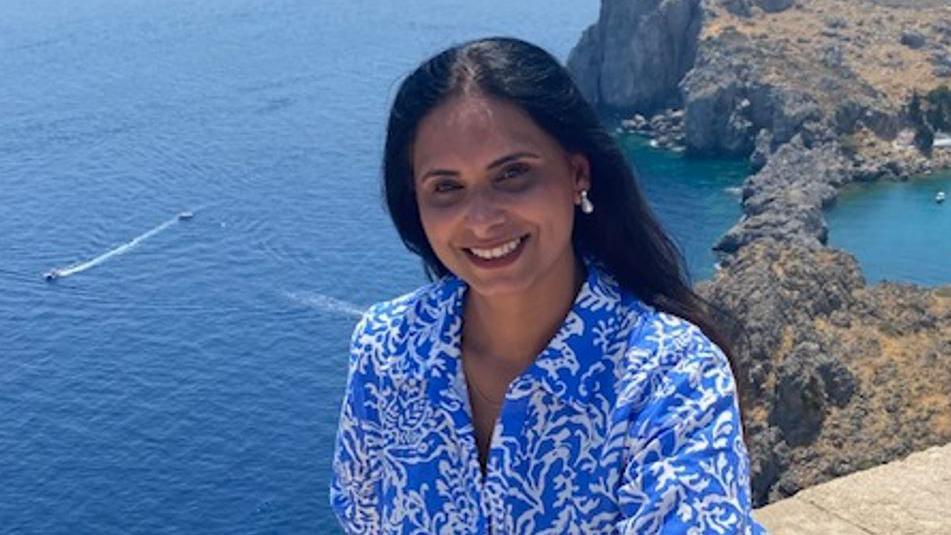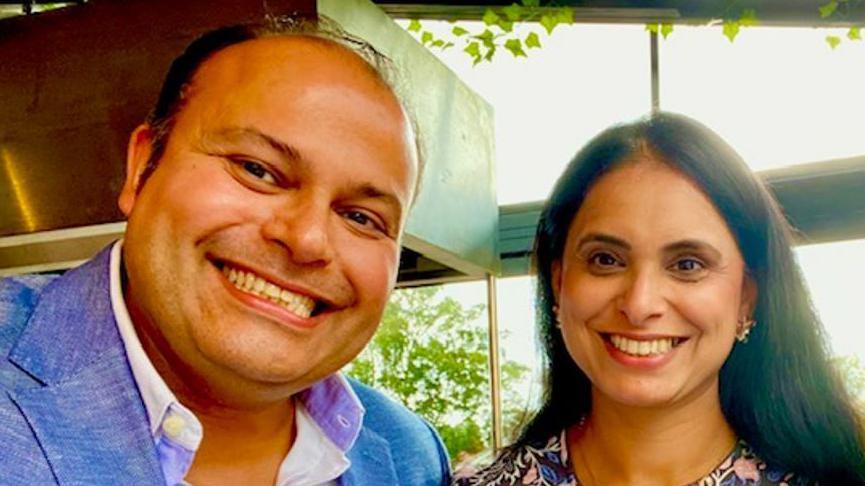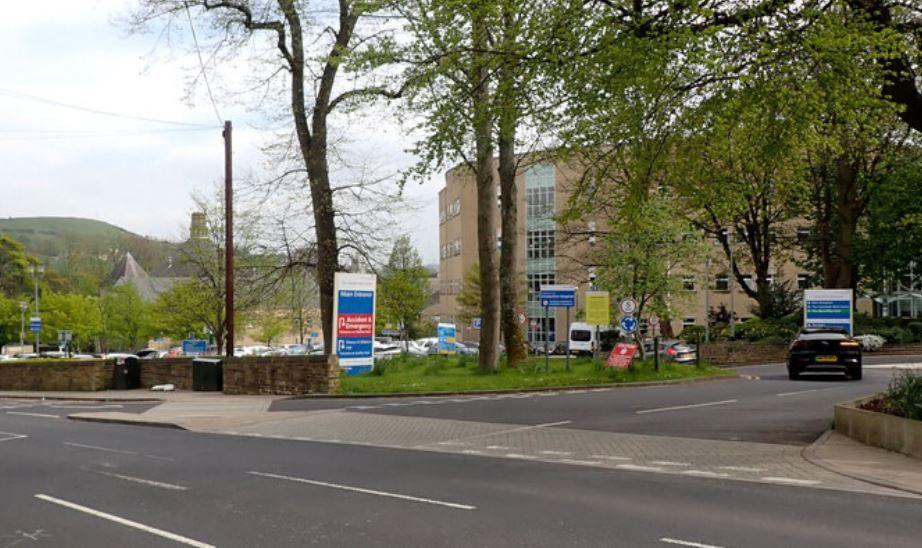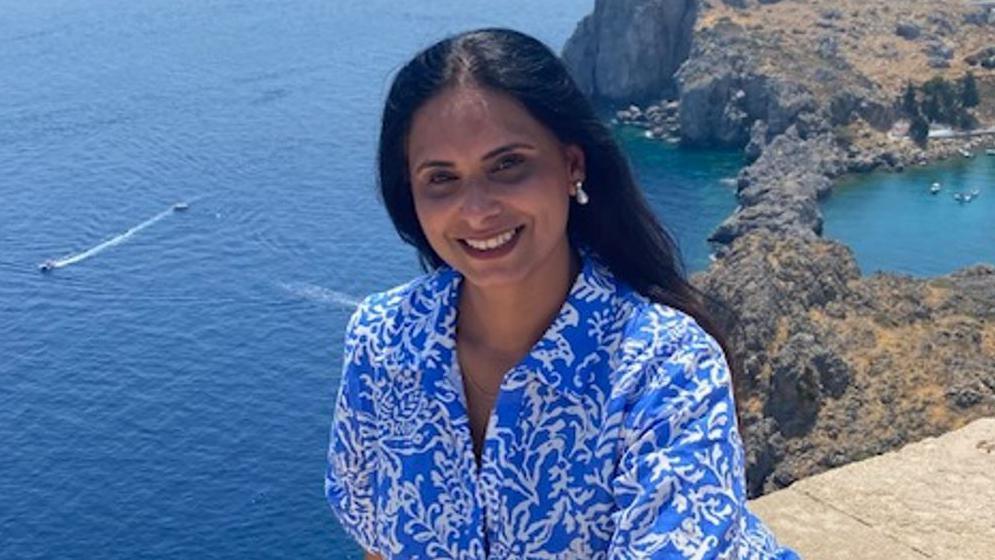Ambulance service apology for stroke victim’s wait

Jasbir Pahal, 44, had a stroke in the early hours of 13 November 2022 and died on 30 November
- Published
An ambulance service has apologised to a family who had to wait 72 minutes for paramedics to reach a 44-year-old woman who later died from a stroke.
Jasbir Pahal, a teaching assistant from Huddersfield, died in November 2022 after suffering a “massive” stroke in the early hours of a Sunday morning.
Her inquest at Wakefield Coroner's Court heard Yorkshire Ambulance Service (YAS) was under “severe pressure” at the time.
An ambulance manager denied any missed opportunity led to the delay.

Mrs Pahal and her husband Satinder had been married for 23 years when she died
Mrs Pahal’s husband woke up in the early hours of 13 November after his wife fell out of bed, the inquest heard.
After the mother of four’s family recognised the symptoms of a stroke, which included a facial droop, they called 999.
James Goulding, a YAS clinical response and governance manager, said “demand exceeded the resources available” at the time of their call.
This was due to ambulances having to wait at hospitals longer than they should have to, the hearing heard.
He told the inquest the stroke was recorded as a Category 2 case, meaning a “potentially life-threatening emergency”, with only Category 1 cases being more serious.
“Everyone sent out before were attending Category 1 or 2-level emergencies,” Mr Goulding said.
“The very first chance they got, an ambulance set off to Mrs Pahal.”
The inquest heard an air ambulance was not available at the time of the call and dispatchers were doing their “very best”.

Mrs Pahal was taken to Calderdale Royal Hospital in Halifax (pictured), before being taken to Leeds General Infirmary
The ambulance arrival time in Mrs Pahal’s case was four times longer than target response times.
Mr Goulding continued: “I am so very sorry we couldn’t respond any quicker to Mrs Pahal, deeply sorry.”
Her family were told by Calderdale Royal Hospital staff that too much time had passed for the use of “clot buster” thrombolysis medicine, the hearing previously heard.
A potentially life-saving procedure called mechanical thrombectomy was locally unavailable outside the hours of 08:00 and 15:00 Monday to Friday.
Mrs Pahal arrived at Leeds General Infirmary approximately nine hours after the original 999 call, with her condition deteriorating further.
She died on 30 November, the inquest heard.
Calderdale and Huddersfield NHS Foundation Trust said it would issue a statement following the conclusion of the inquest.
Follow BBC Yorkshire on Facebook, external, Twitter, external and Instagram, external. Send your story ideas to yorkslincs.news@bbc.co.uk, external.
Related topics
- Published24 October 2023
